
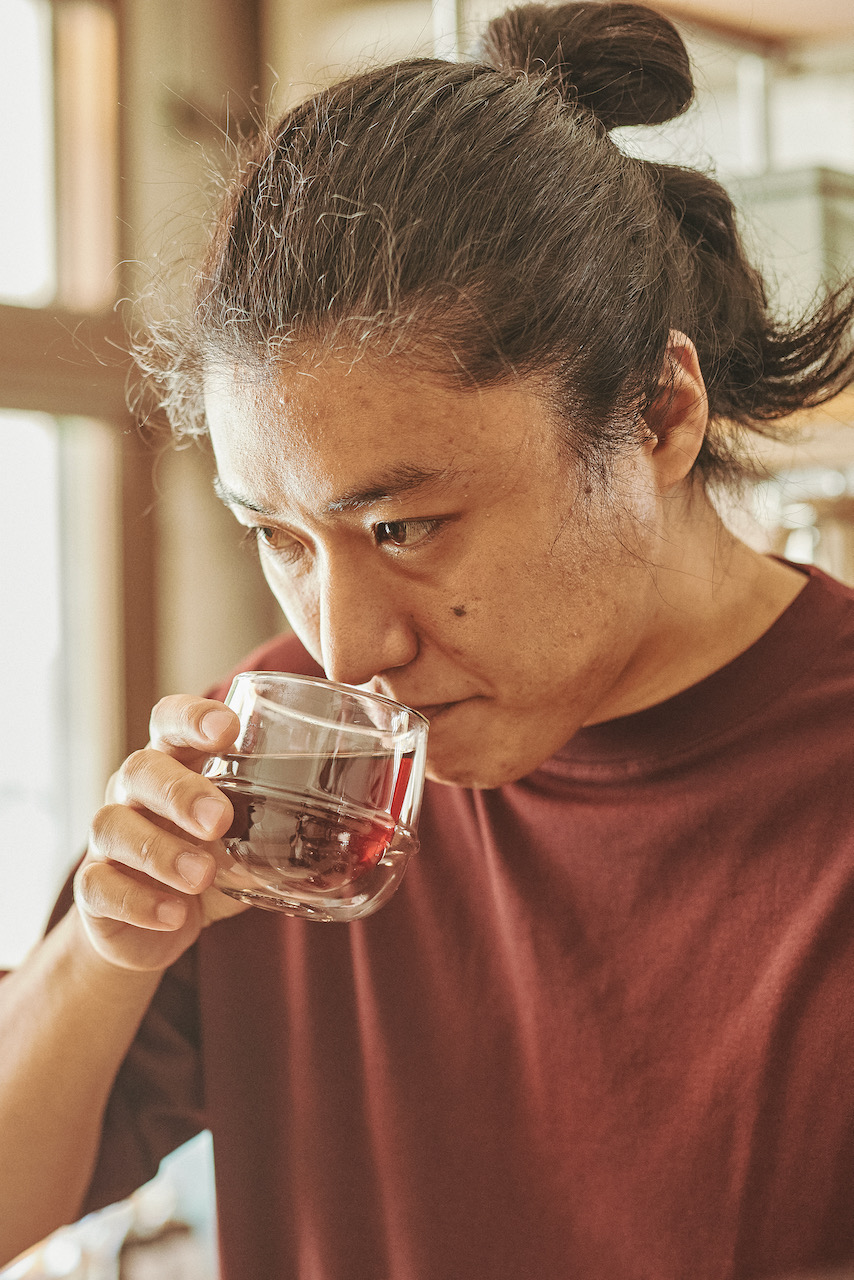
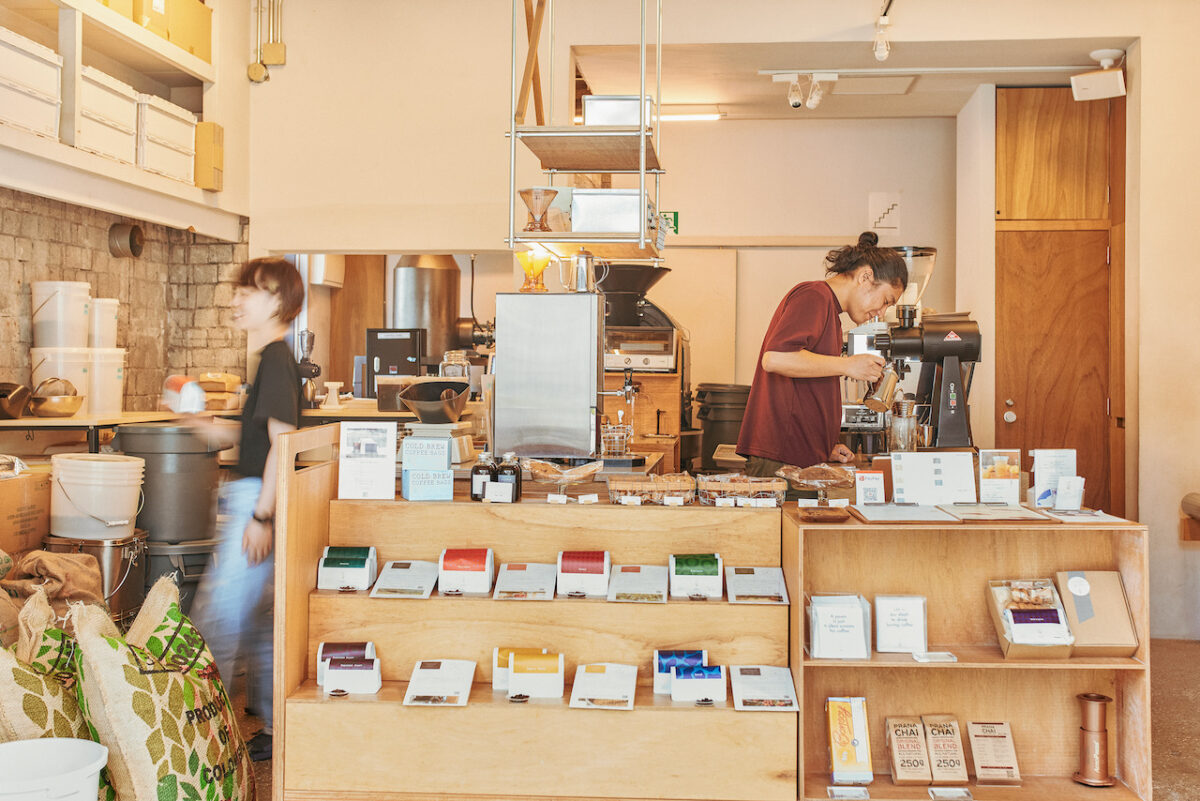
Coffee Wrights was born in Sangenjaya in Tokyo in December 2016 from a casual idea of a barista saying, “I simply just want to make coffee.” We interviewed Mr. Takuto Sakaibara, a roaster at Coffee Wrights and free jazz and improvisational musician, who currently runs three coffee shops in Tokyo.
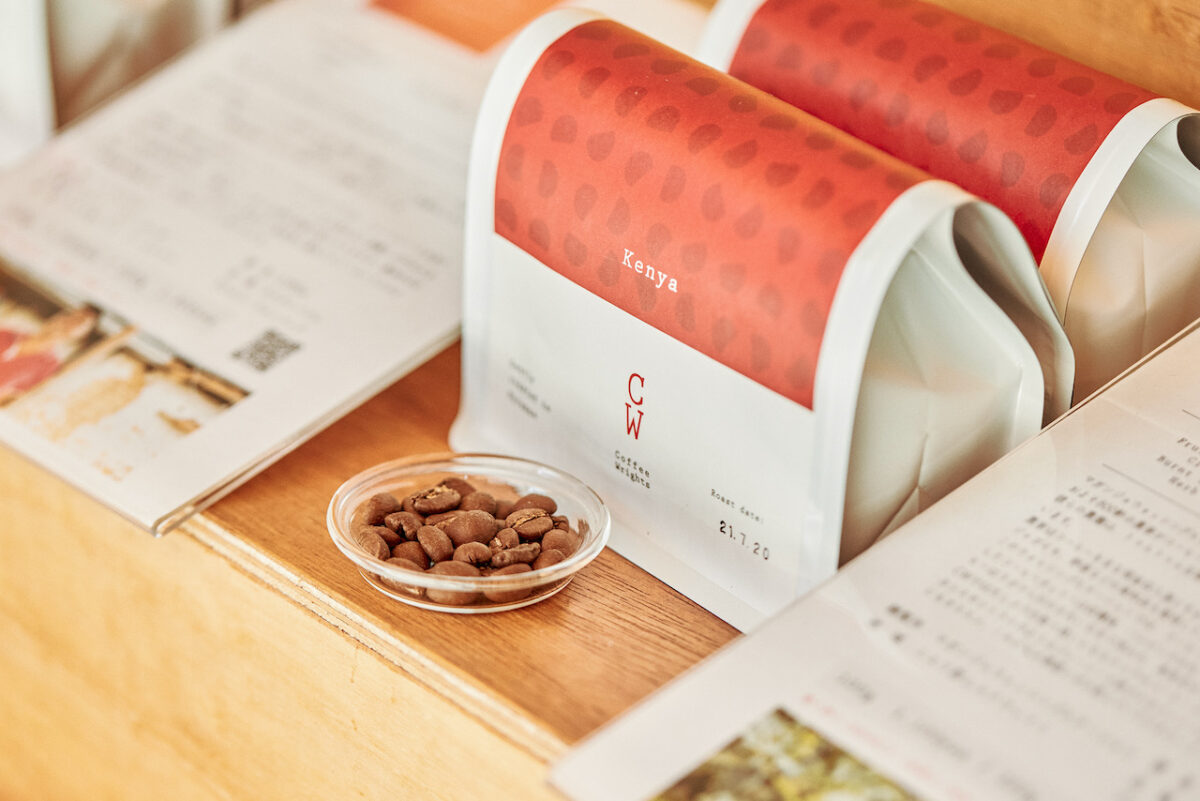
I want to convey the joy of coffee.
Sakaibara states, “At Coffee Wrights, which we named to describe the people who make coffee, we feel the people who buy and enjoy our coffee beans are part of our members. We have created a store where people can feel free to consult with us about how to enjoy coffee. We hold workshops at the store so that people can learn more about coffee.”
Attracted by the concept of increasing the number of people who drink coffee, as written on the website, Sakaibara joined Coffee Wrights in March 2017, shortly after the store was opened.
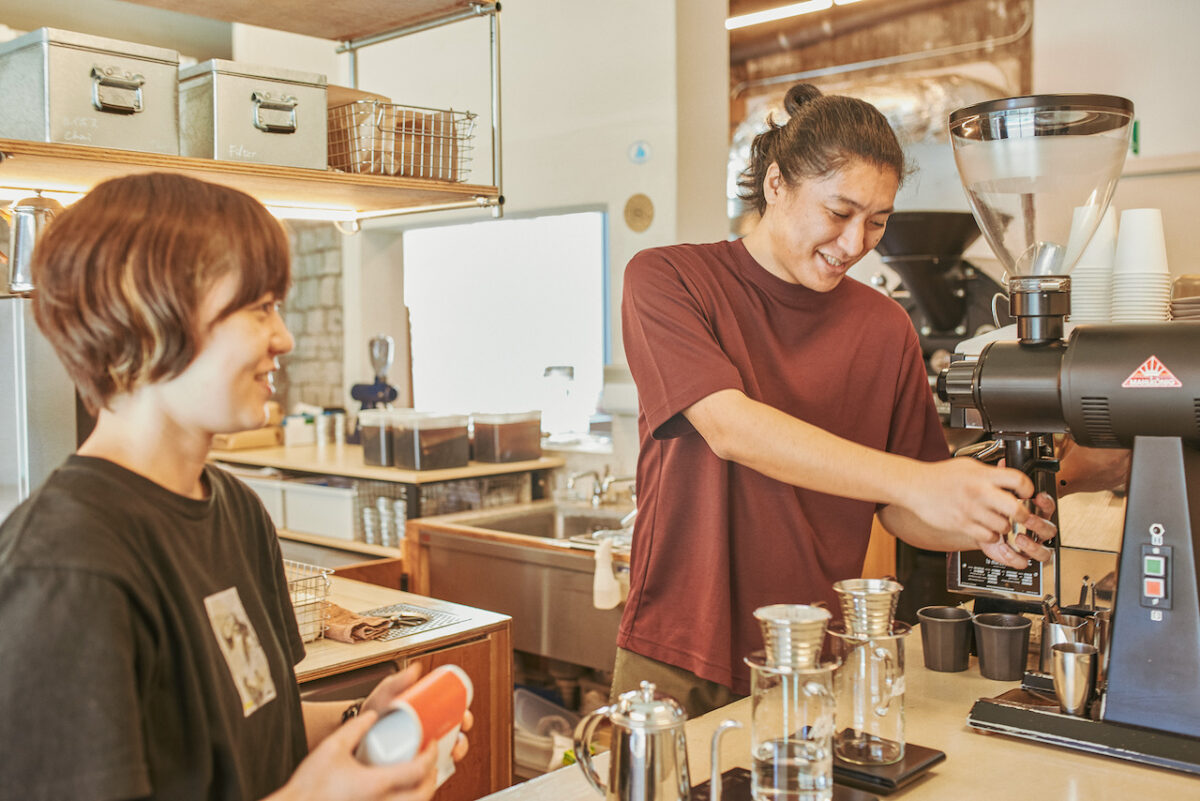
“The person who taught me the appeal of specialty coffee was ‘Renshiro Coffee’ a roastery in Miyazaki Prefecture. The owner of ‘Renshiro Coffee’ couldn’t stop talking about coffee and it seemed he opened the store solely because of his passion for coffee. His overflowing passion drew me into the world of coffee; it led me to the store before I knew it. I joined Coffee Wrights so I could tell people -as the owner of ‘Renshiro Coffee’ had taught me with his passion- that coffee is fun, so everyone should try it.”
“What’s interesting about coffee compared to other drinks is that you have to brew it yourself to drink it. I think it’s wonderful to be able to experience this feeling of making coffee by receiving the baton that has been handed to me by the various people involved in the coffee business from producers to processors to importers.”
“As a roaster, I try to roast coffee in a way that brings out the best potential of the coffee itself. When I had a specialty coffee as a consumer back then, I remember I was very moved by the taste of the coffee. I looked at the cup description that said, “maple syrup” and when I tasted it, it really tasted like maple syrup. That’s why I try to make the unique taste of specialty coffee easier for people to understand.”

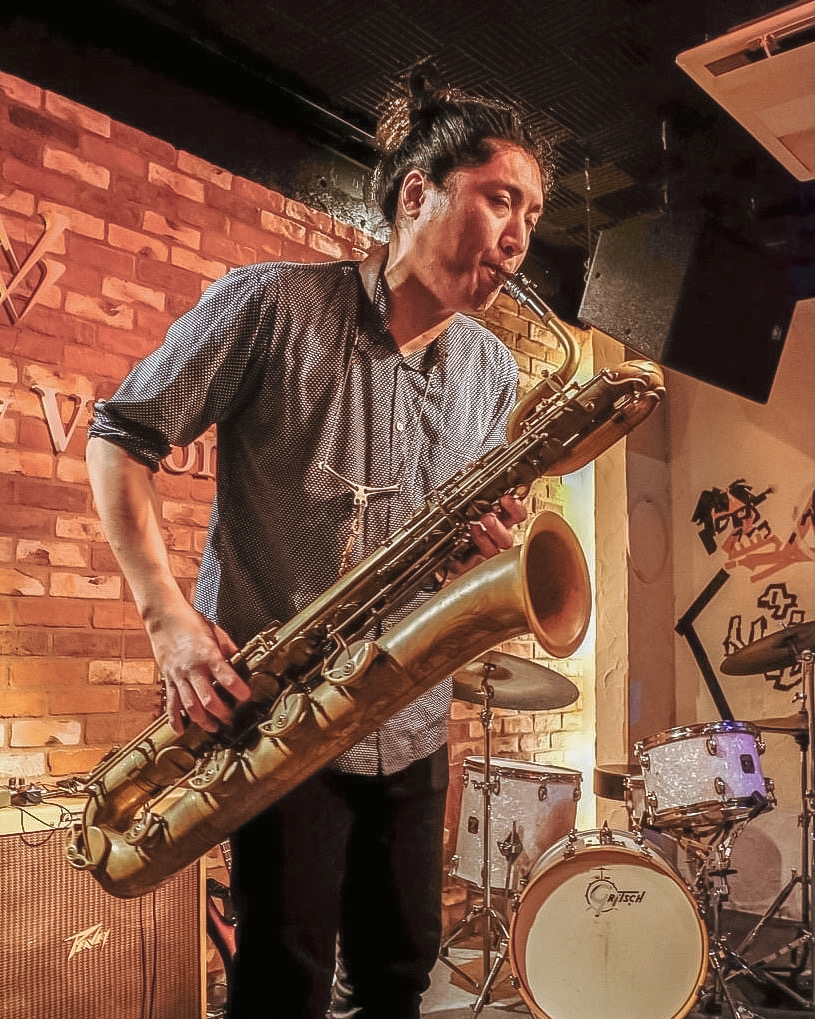
Attracted by freestyle music
Sakaibara is also a musician who plays the saxophone. He plays improvisational and free jazz. Right after he entered university, he was captivated by the appeal of jazz at a live music club where jazz musicians gathered to play.
“The performance was the most powerful and outrageous I had ever heard and the distance between the performers and audience was so close that I could reach out and touch them. The directness of the live sound was overwhelming. There was a freedom that was unique and I was attracted to the feeling that the music was ‘betraying’ the listeners’ preconceived notions in a good way.”
Since then, he has been absorbed in music. After graduating from university, he continued his musical activities without finding a full-time job. Except for two days a week when he worked from morning to night at a lucrative wedding hall, he devoted all his time to the music.
“I was paid 500 yen (about 5 USD) for each live performance. If you drink coffee at the store and pay for the parking lot, you have already used up what you earned. But that didn’t bother me at all. I was more interested in expressing what I wanted to express and being recognized by someone. It was also natural to work in that way because I saw that even jazz musicians coming from Tokyo were working in such a way. It was a niche field to begin with anyway, so I thought it would be fine as long as it was conveyed to the people who would understand it. I even thought it would be not that cool if my music started to sell well.” (laughs)
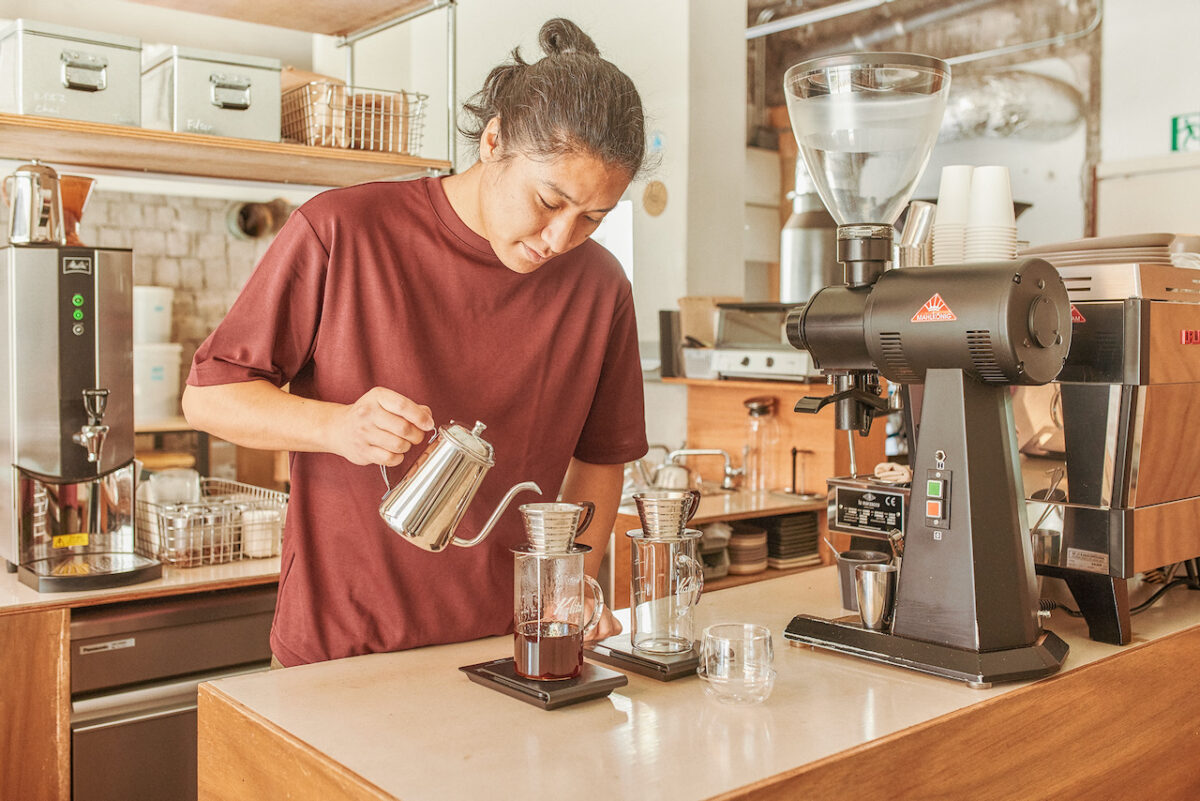
However, when he was in his mid-twenties, he reached a dead end. He couldn’t find the right distance between music and himself and then sometimes skipped live performances. As a way to escape from music, Sakaibara started working part-time at Starbucks.
“I didn’t think much. I just thought ‘Why don’t I make coffee?’ I applied for a job at Starbucks out of curiosity since Starbucks had a cool image for me and I actually got the job. Just as I was getting interested in coffee at Starbucks, I learned about specialty coffee at ‘Renshiro Coffee’ and that made me think then that I wanted to pursue coffee as a career. Unlike in the world of jazz where even if they love music, they sometimes can’t empathize with each other, but in the world of coffee, I was happy to find many people I can empathize with.”

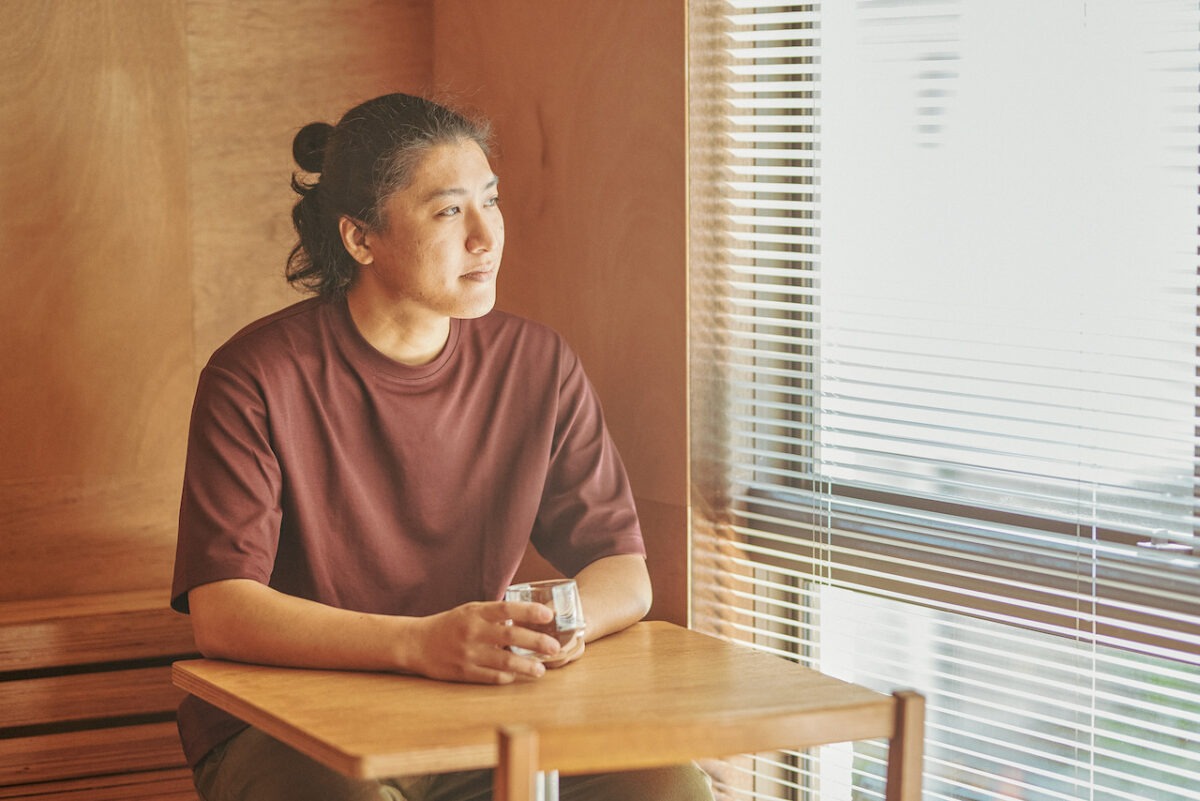
Music and coffee that influence each other.
Sakaibara left Ehime Prefecture, where he was born and grew up, to join the university in Miyazaki Prefecture. He had lived there for ten years before coming to Tokyo in December 2016. He moved to Tokyo thinking that he wanted to have a fresh start making music and coffee in Tokyo. Such thoughts were in his mind. While his interest in music was shifting from standard jazz to free jazz, his vision about the future was becoming clearer.
“When I heard musicians incorporating elements of free jazz in their performances making their sounds that were simply cool and beyond my imagination, I wanted to master such sounds myself.”
“Standard jazz, where you play a song, is like an equivalent of music where to a certain extent you follow a script while adding your own lines, whereas in free jazz, there is no framework of a song to begin with, equivalent to the music of a stage play without a script and without the concept of lines. I was attracted to this freedom- if you want to have melodies, scales, and rhythms, then you can have them, but if you don’t want them, you don’t have to have them.”
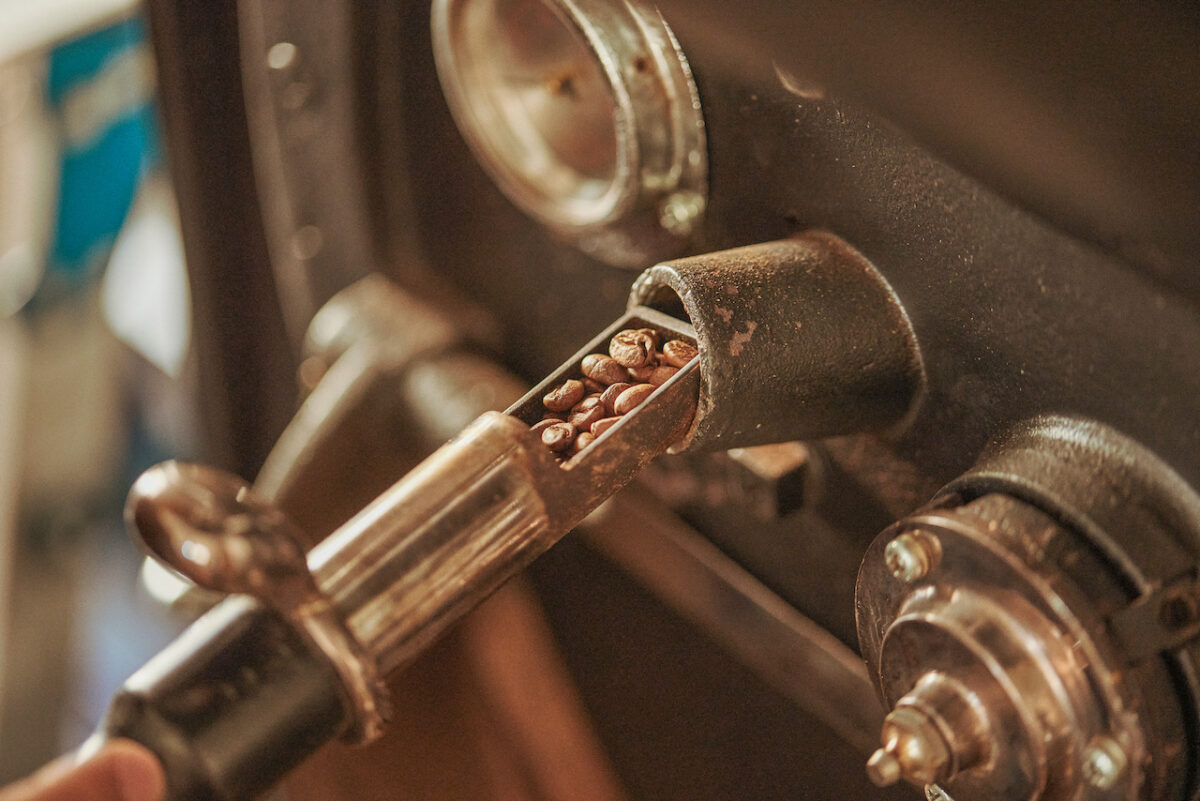
On one hand, Sakaibara has the additional role of roaster. Roasting, which requires controlling temperatures by looking at the time and developing repeatable performance, is the opposite of free jazz that is performed uniquely each time.
Sakaibara states, “I feel like doing both makes it possible to influence each other and it is interesting to go back and forth between the two worlds. It’s also exciting to meet different people from each world, from the music world and the coffee world. Being able to understand both ends of the spectrum is helpful in maintaining my balance and being present in both worlds.”
Sakaibara, who used to stand out in crowds, says he likes the word “balance” nowadays.
“I’ve come to feel that it’s more interesting to maintain a balance while having many different perspectives when I try to evaluate things. I thought it’s more noble in that way and I started to find it interesting. It is said that you can’t just roast if you rely too much on your senses, but I think it is necessary to have both. It’s necessary to understand what can’t be expressed with numbers like senses and it’s also necessary to understand the sense of what can be expressed with numbers like logic. I think it’s because I am involved in both music and coffee that I have developed a sense of valuing both in a well-balanced manner.”
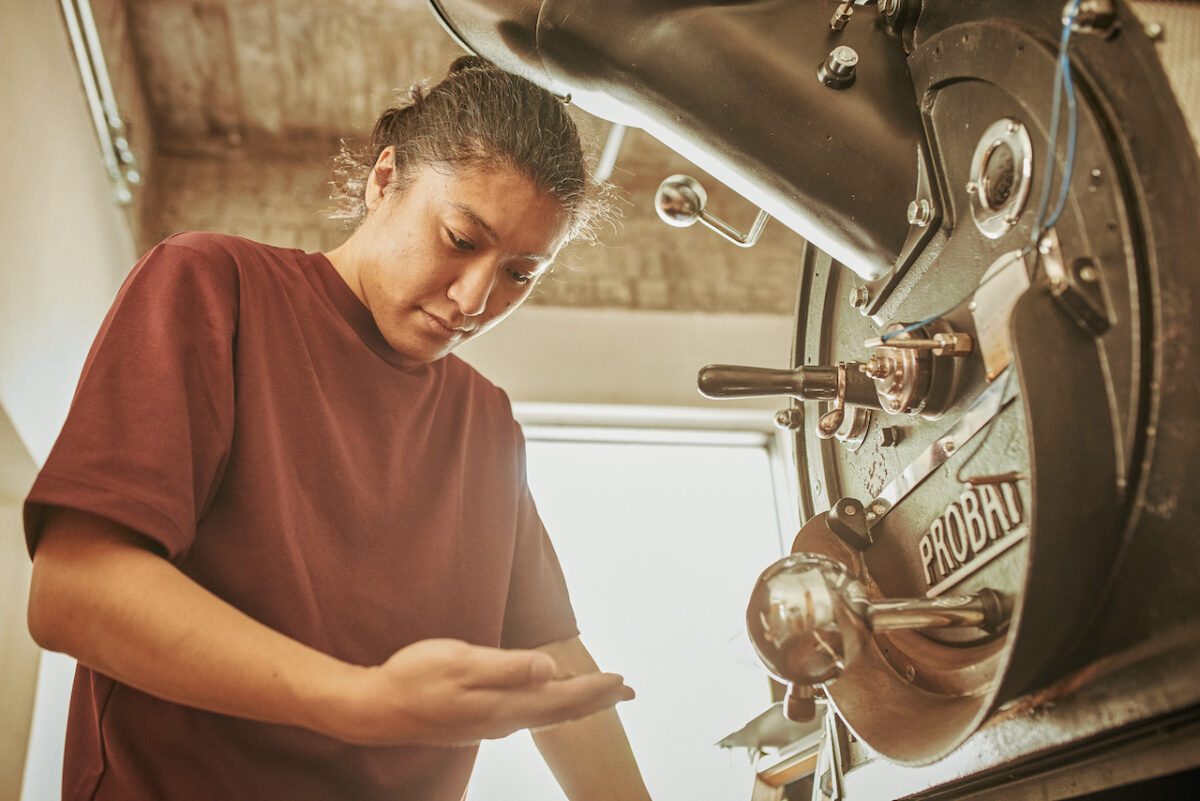
At first glance, coffee seems to be placed at the opposite end of the spectrum from music. However, he said that parts of them sometimes overlap providing ‘once-in-a-lifetime’ opportunities.
Sakaibara states, “Free jazz is music which is ‘once-in-a-lifetime’ in the sense that it changes your physical condition and mood, while coffee is also a ‘once-in-a-lifetime’ drink in the sense that its taste changes depending on how you brew it.”
“Even coffee from the same producer can vary in quality from year to year and the taste can change depending on the climate and environment. My ideal as a roaster is to maintain the same quality no matter what the external conditions are, although it can be different based on how coffee ages. When you get right down to it, there may be only precise days and times when a particular flavor can be achieved.”

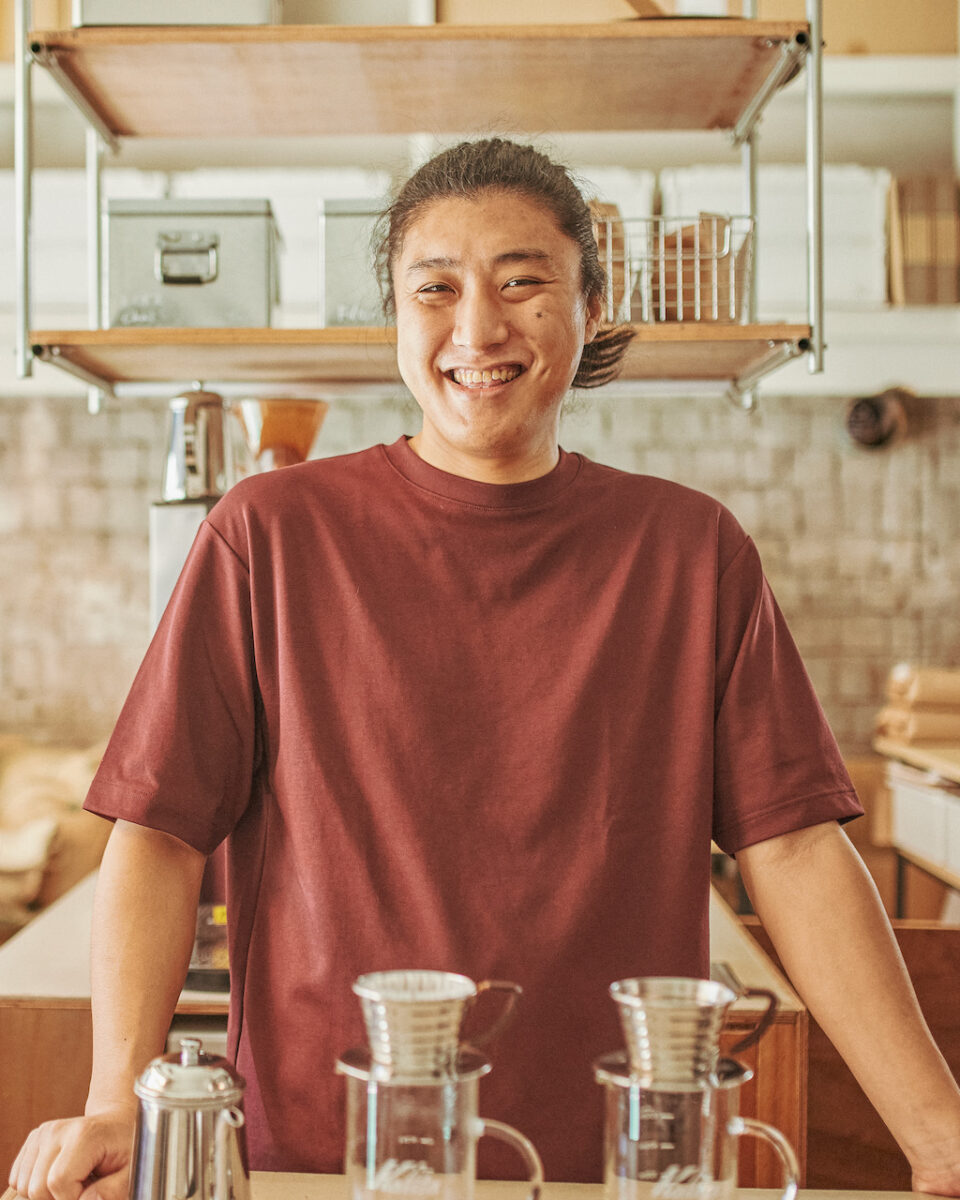
It’s interesting because I don’t know what to expect.
Sakaibara was fascinated by jazz at a live music club right after he entered university because it was something that he didn’t understand.
“I value the process of taking something that I don’t understand and making it understandable. For example, if I go and drink a craft beer as one of the consumers and I don’t really understand it but it tastes really good, I want to cherish that state of not understanding it completely.”
“Even though something can be understood by asking someone or looking it up on the Internet easily, it’s more interesting to reach the answer through trial and error. In that way, I can keep the fun of not knowing.”
“I can experience joy when I suddenly understand something that I haven’t understood for a long time. It’s not that I want to go to the top of the mountain; I just want to climb the mountain.” (laughs)
Sakaibara is absorbed in his work and lets his passions overflow. Sakaibara will continue to pursue such moments both in the world of coffee and the world of music.
“I don’t have any goals for the future, but that’s because I’ve made it my goal not to set any goals. I’ve seen many jazz musicians who don’t think about the future much and just enjoy the moments in front of them, so I have been thinking that I am also able to handle anything. By trying to live in the present moment, I feel like I can overcome my vague anxiety about the future.”
Originally written in Japanese by Tatsuya Nakamichi.
MY FAVORITE COFFEE
I am so moved when I happen to meet a cup of coffee that really tastes good that I don’t know why I feel that way which happens once in a while. I get excited by things that I don’t understand, so I just prefer to leave them as unknown to me.
